15 Delicious Low-Sodium Foods That Make Healthy Eating Easy
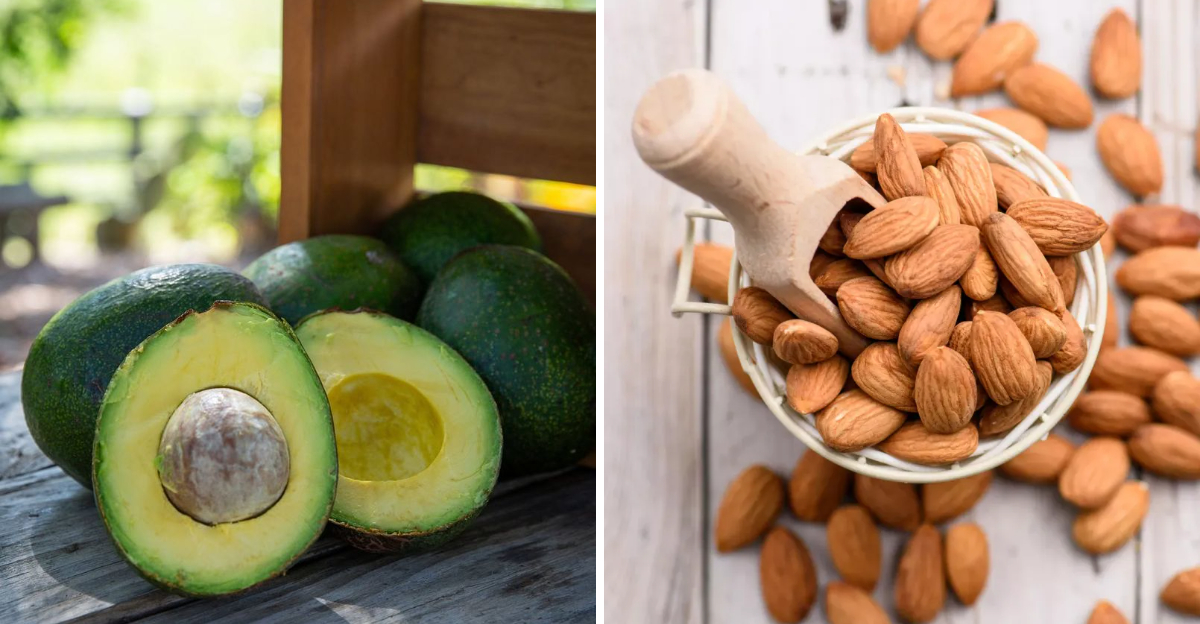
Maintaining a diet that’s both tasty and low in sodium can be challenging. However, by selecting foods naturally low in sodium, you can enjoy flavorful meals while staying healthy. This guide highlights 15 delicious low-sodium foods that make healthy eating effortless.
1. Fresh Avocado
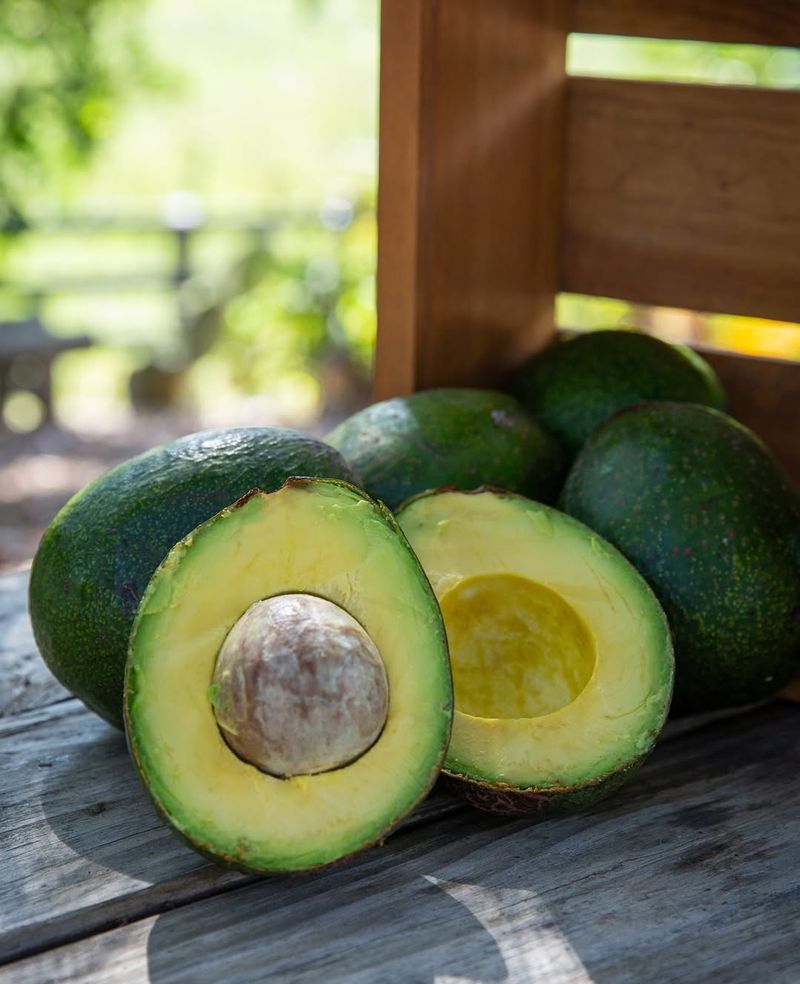
Avocados are a versatile, creamy fruit that can enhance a variety of dishes. They’re naturally low in sodium, making them an excellent addition to a heart-healthy diet. Whether sliced in a salad or mashed as guacamole, avocados provide a rich source of healthy fats and nutrients. Their subtle flavor makes them a perfect base for many meals. Additionally, avocados are rich in potassium, which helps balance sodium levels in the body. Enjoying them with a squeeze of lime enhances their taste without adding sodium.
2. Unsalted Almonds
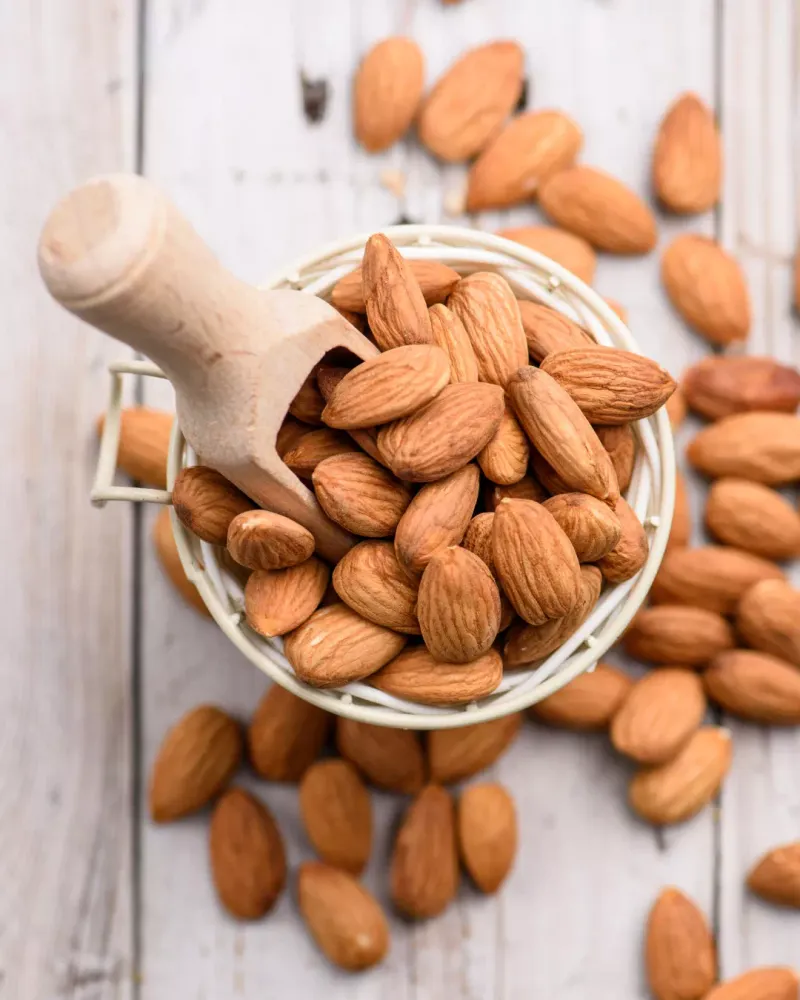
Unsalted almonds are a crunchy, satisfying snack that won’t contribute to your sodium intake. These nuts are packed with protein, healthy fats, and fiber, promoting satiety and heart health. Enjoy them on their own or mixed into a low-sodium trail mix. Almonds also provide essential nutrients like vitamin E and magnesium, supporting overall wellness. Their mild, nutty flavor pairs well with a variety of other healthy foods. For an extra layer of taste, try toasting them lightly.
3. Quinoa
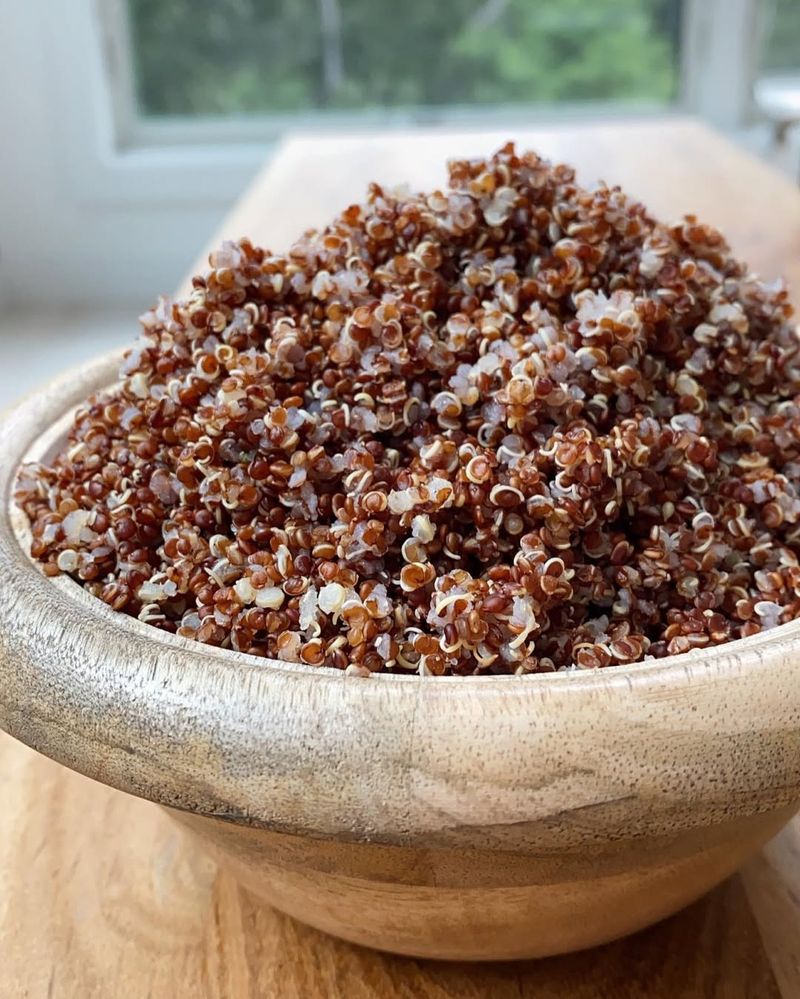
Quinoa is a versatile grain that’s naturally low in sodium, making it a great staple for healthy eating. It’s rich in protein and fiber, keeping you full and satisfied. This ancient grain has a pleasant, nutty flavor that complements both savory and sweet dishes. Quinoa is gluten-free, making it suitable for those with dietary restrictions. Prepare it as a base for salads or as a side dish with roasted vegetables. Its adaptability ensures you can enjoy it in countless ways.
4. Berries
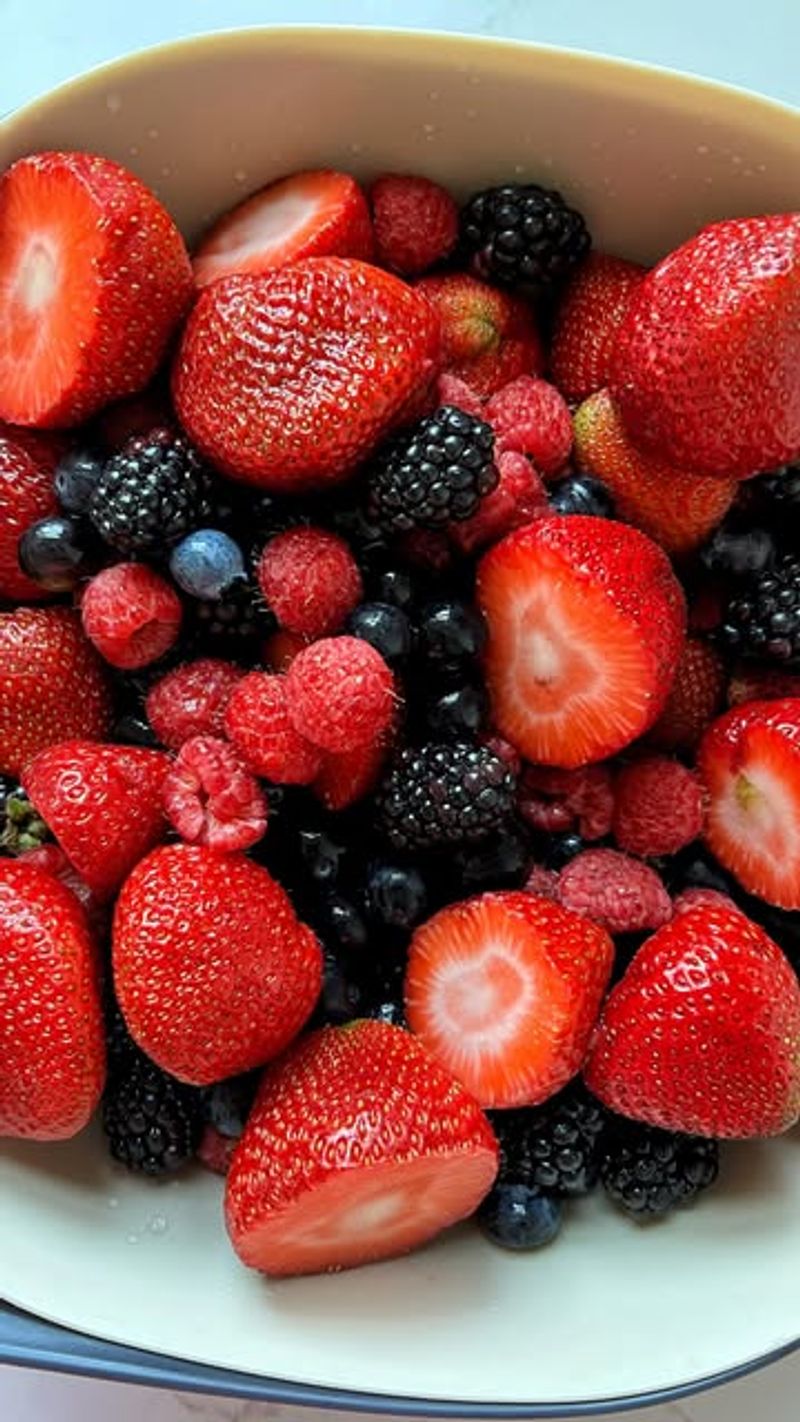
Berries are a sweet, refreshing treat that won’t add sodium to your diet. These fruits are loaded with antioxidants, vitamins, and fiber, supporting heart and brain health. Whether enjoyed on their own, in a smoothie, or atop yogurt, berries offer a burst of natural sweetness. Their vibrant colors and juicy textures make them a favorite for both young and old. Incorporating them into your diet is a delicious way to nourish your body. Simply rinse and enjoy their natural goodness.
5. Brown Rice
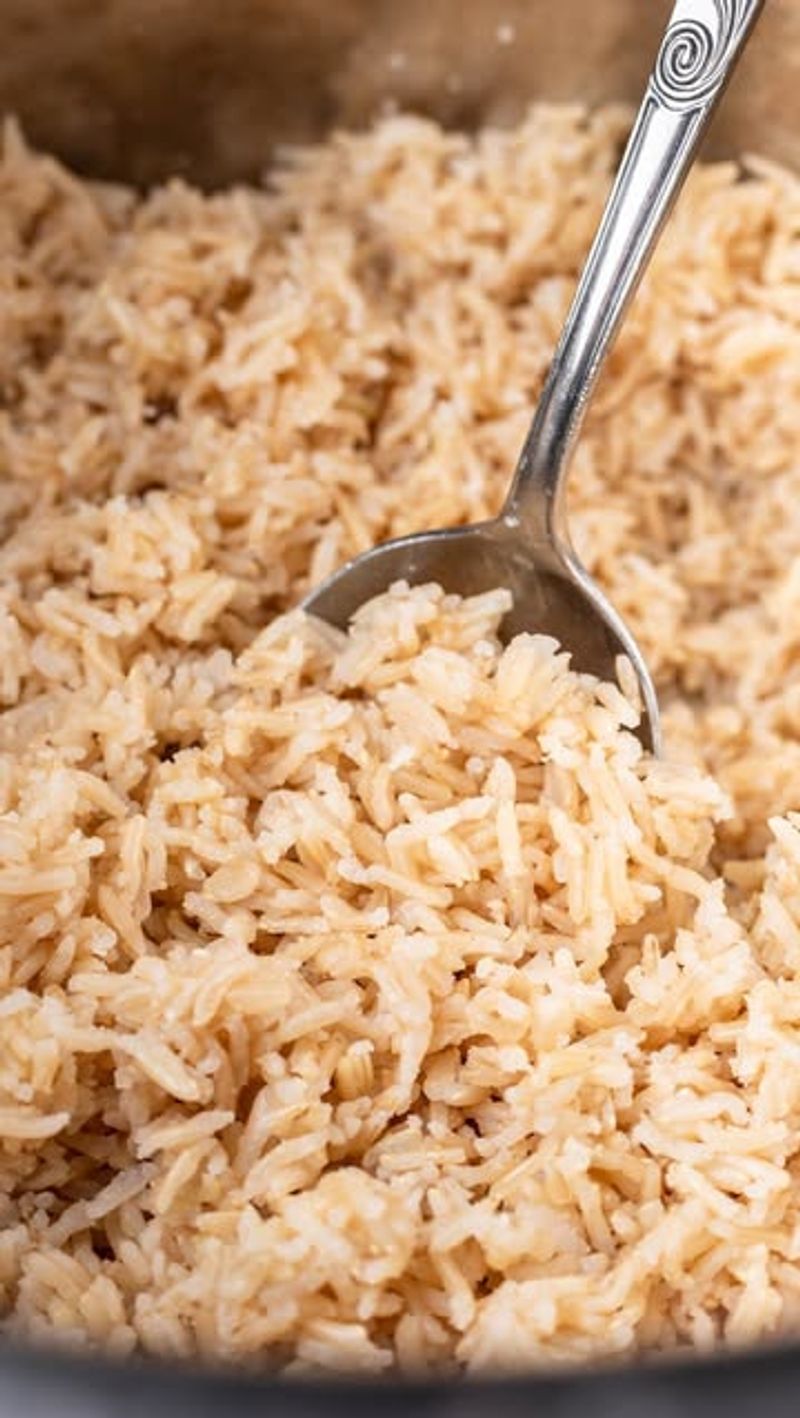
Brown rice is a wholesome, low-sodium alternative to white rice, offering more nutrients and fiber. Its nutty flavor and chewy texture make it a satisfying base for a variety of dishes. Rich in complex carbohydrates, brown rice provides steady energy levels. It’s easy to prepare and pairs well with vegetables, lean proteins, or in a hearty stir-fry. Brown rice is also a good source of magnesium, contributing to heart health. Enjoy it as a staple in your low-sodium diet for a nourishing, delicious meal.
6. Sweet Potatoes
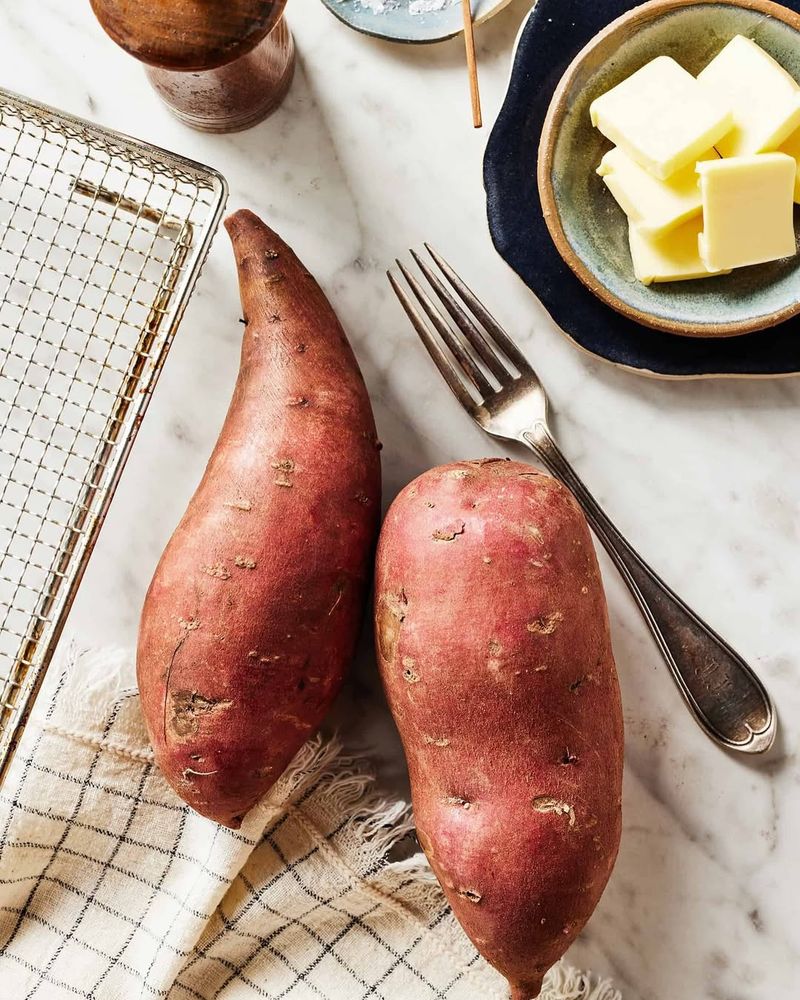
Sweet potatoes are a nutritious, naturally sweet vegetable that fits perfectly into a low-sodium diet. They are high in fiber, vitamins A and C, and potassium, making them a powerhouse of nutrition. Roasting sweet potatoes brings out their natural sweetness, creating a delicious caramelized exterior. Enjoy them as a side dish, in soups, or mashed as a comforting alternative to regular potatoes. Their versatility and delightful taste make sweet potatoes a beloved choice for many. They’re not just healthy, but incredibly satisfying.
7. Leafy Greens
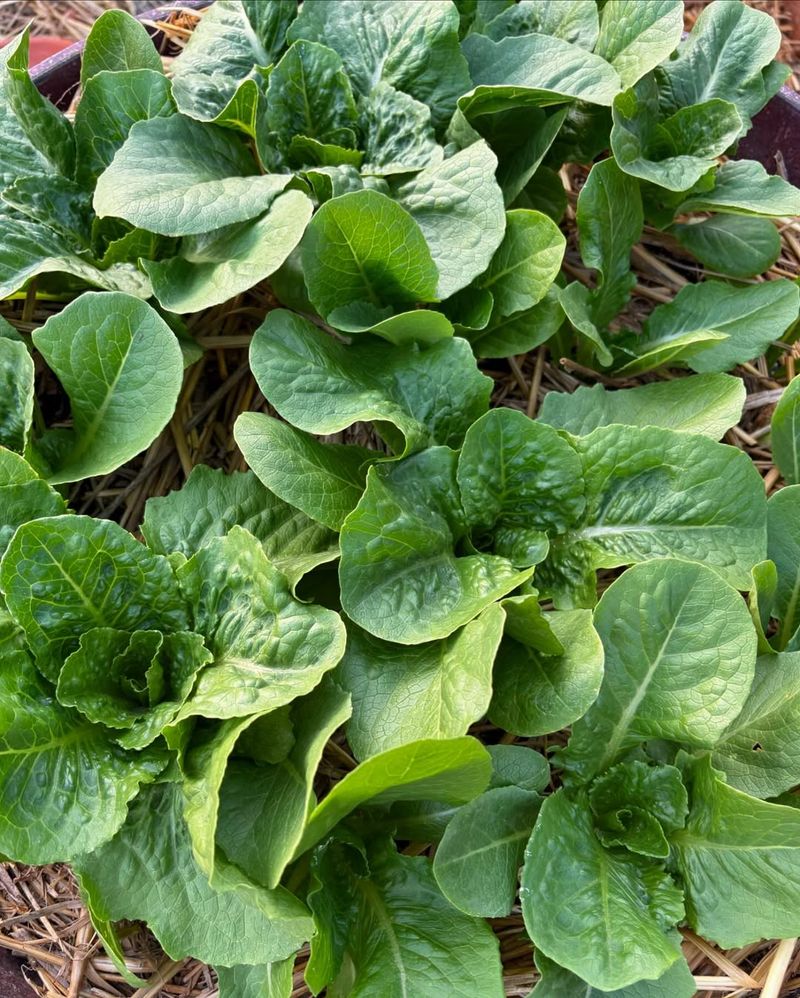
Leafy greens are a cornerstone of a low-sodium diet, providing a wealth of nutrients without adding salt. Varieties like spinach, kale, and arugula are rich in vitamins, minerals, and antioxidants. They’re perfect for salads, smoothies, or sautéing as a side dish. Leafy greens support heart health, bone strength, and immune function. Their fresh, crisp texture and vibrant color make meals more appealing. Experiment with different types to keep your meals exciting and nourishing. They are an effortless way to enhance your diet.
8. Cauliflower
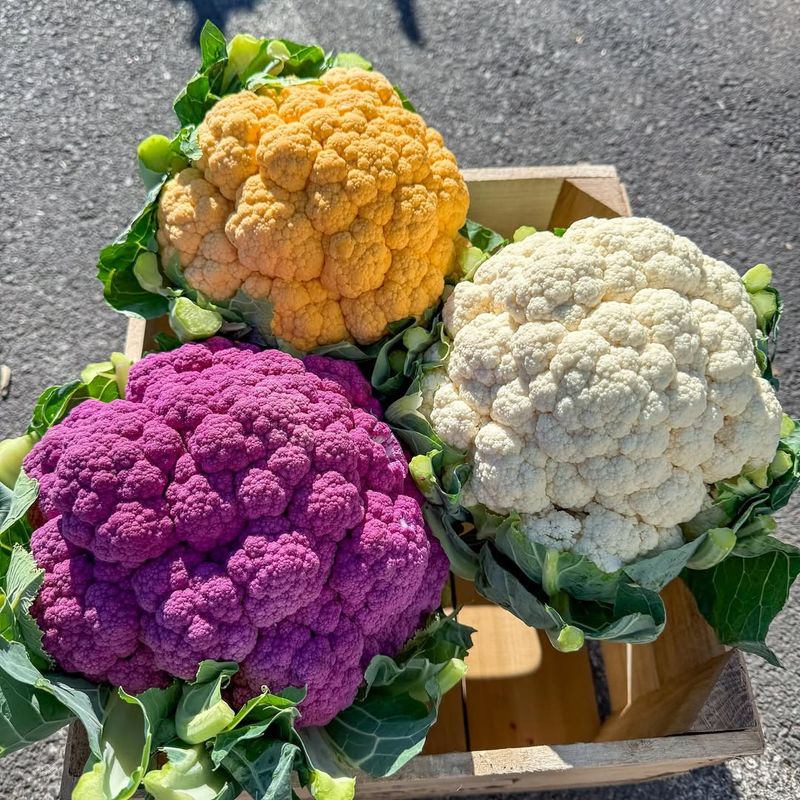
Cauliflower is a versatile, low-sodium vegetable that can be transformed into a variety of dishes. Its mild flavor makes it a great substitute for higher-carb foods like rice or potatoes. Roasting cauliflower brings out a rich, nutty taste that pairs well with spices. This cruciferous vegetable is packed with vitamin C, fiber, and antioxidants, supporting overall wellness. Enjoy it as a roasted side dish, in a stir-fry, or mashed. Cauliflower’s adaptability and nutritional profile make it a staple in a healthy diet.
9. Bananas
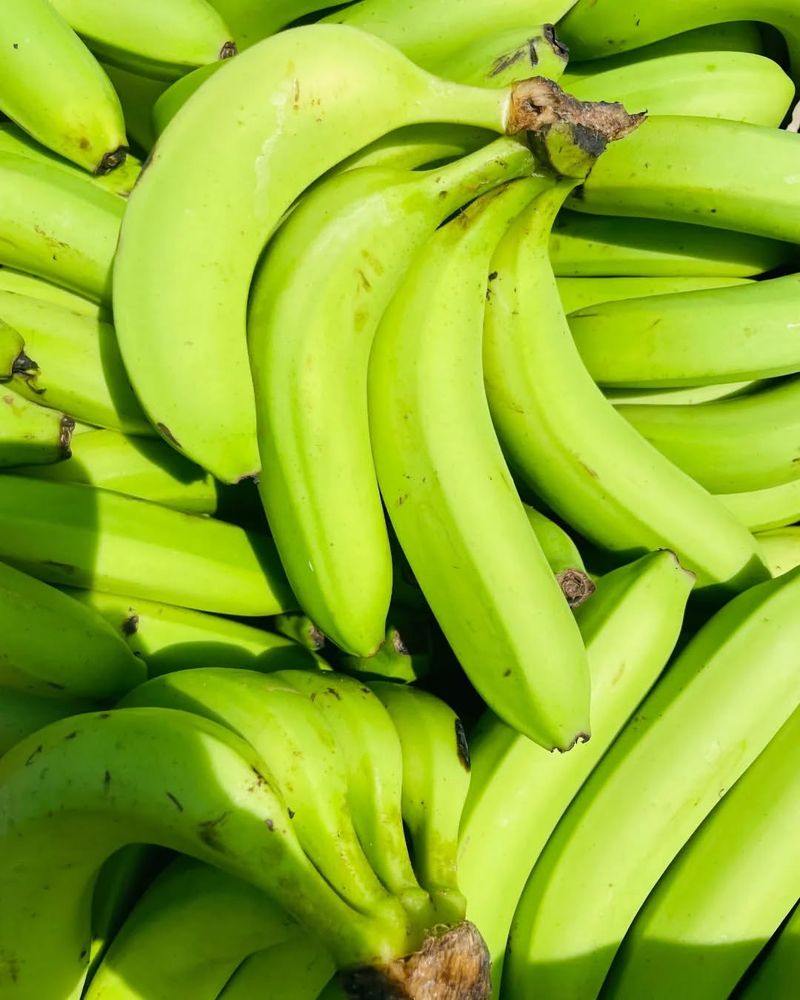
Bananas are a convenient, naturally sweet fruit that’s low in sodium, making them an ideal snack. They’re rich in potassium, which helps regulate blood pressure and balance sodium levels. Bananas are also a good source of vitamin C and vitamin B6. This fruit’s creamy texture and mild flavor make it a favorite for smoothies, baking, or simply enjoying on its own. Easy to carry and eat on the go, bananas are a practical choice for busy lifestyles. Relish them as part of your healthy diet.
10. Chia Seeds
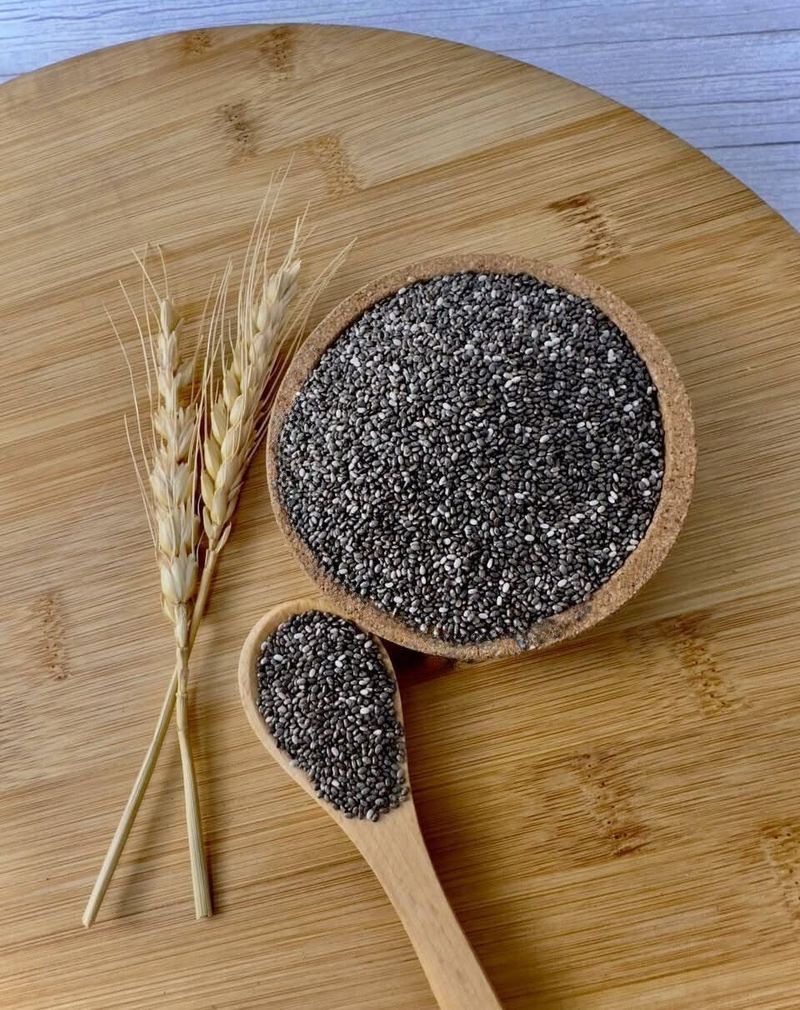
Chia seeds are a nutrient-dense food that’s naturally low in sodium, perfect for enhancing your diet. These tiny seeds are rich in omega-3 fatty acids, fiber, and protein, providing a satisfying nutritional boost. When soaked in liquid, they form a gel-like consistency, making them great for puddings, smoothies, or toppings. Chia seeds add a delightful crunch and help keep you full longer. They’re versatile and can be easily incorporated into various dishes. Embrace chia seeds for a fun and healthy food experience.
11. Greek Yogurt

Greek yogurt is a creamy, protein-rich option for those seeking low-sodium foods. It’s thicker and tangier than regular yogurt, making it a delicious base for both sweet and savory dishes. High in calcium and probiotics, Greek yogurt supports bone and digestive health. Enjoy it with fresh fruit, as a topping, or in smoothies for a nutritious snack. Its versatility and rich texture make it a favorite among health enthusiasts. Choose plain, unsweetened varieties to minimize added sugars.
12. Egg Whites
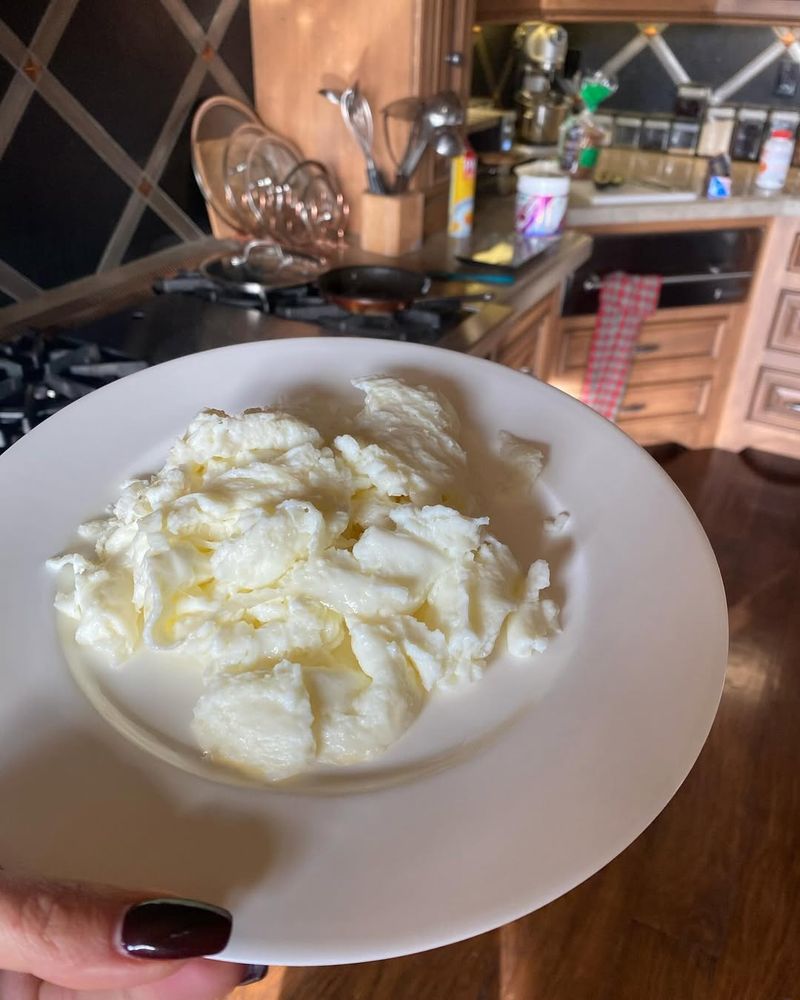
Egg whites are a low-sodium, protein-rich food perfect for anyone looking to reduce salt intake. They’re fat-free and can be used in a variety of dishes, from omelets to baking. Egg whites provide essential nutrients like selenium and riboflavin while being low in calories. Their mild flavor allows them to absorb spices and herbs, creating delicious meals. Incorporate them into your breakfast or use them to add volume to baked goods. Egg whites are a versatile ingredient for healthy eating.
13. Peaches
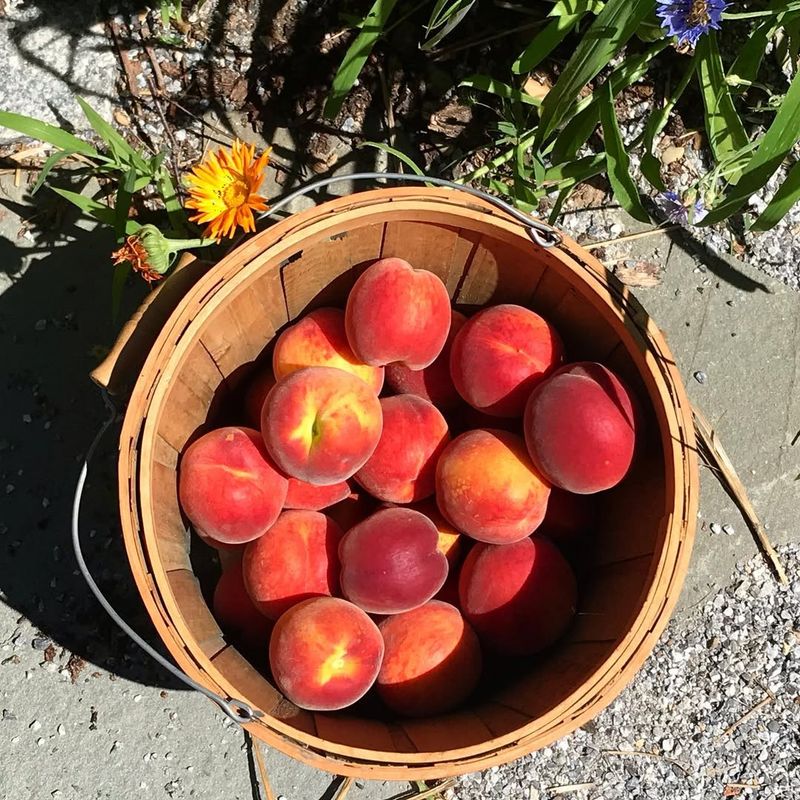
Peaches are a sweet, juicy fruit that’s naturally low in sodium, making them a delightful addition to your diet. They’re rich in vitamins A and C, supporting skin health and immunity. Peaches are also a good source of dietary fiber, aiding digestion. Enjoy them fresh, in salads, or as a topping for yogurt. Their fragrant aroma and succulent texture make peaches a summer favorite. Incorporate them into your meals for a burst of natural sweetness and nutrition. They offer a refreshing, healthy treat.
14. Cucumber
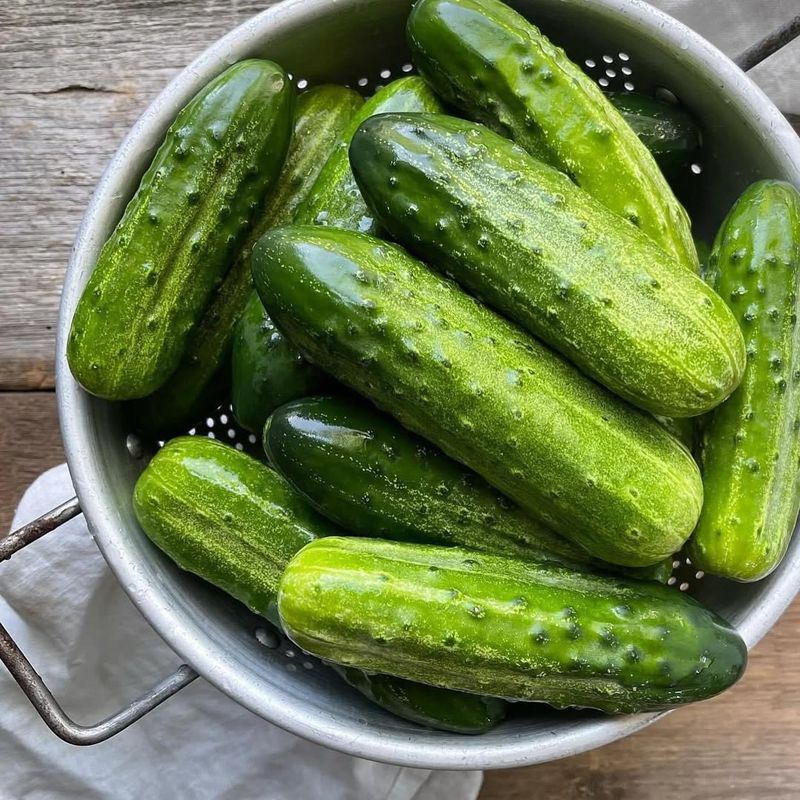
Cucumbers are hydrating, low-sodium vegetables that add a refreshing crunch to meals. They’re composed mainly of water, helping to keep you hydrated while providing a satisfying texture. Cucumbers are low in calories and high in vitamins K and C. Enjoy them sliced in salads, as a snack with dip, or in sandwiches. Their mild flavor pairs well with a variety of seasonings and other vegetables. Cucumbers are a versatile, healthy food to include in your diet, especially during hot weather.
15. Apples
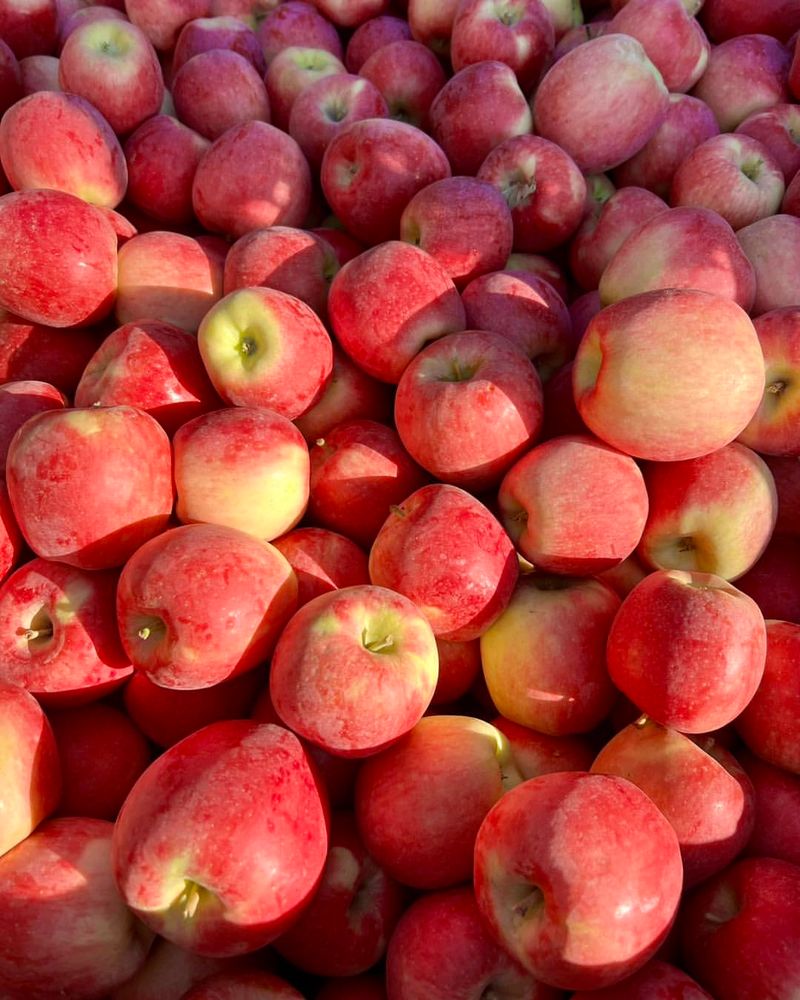
Apples are a crunchy, sweet fruit that’s naturally low in sodium, making them a perfect snack for health-conscious individuals. They’re high in dietary fiber, vitamin C, and antioxidants, supporting heart health and digestion. Enjoy apples fresh, in salads, or baked for a warm, comforting dessert. With a variety of flavors and textures available, apples can suit many tastes. Incorporating apples into your diet is an easy way to enjoy a nutritious and satisfying snack. They’re readily available and convenient for on-the-go eating.
